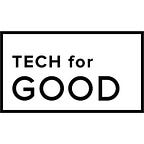Meet the Rethink Supply Chains challenge finalists | Geopoll
(2016)
By: Cat Cochrane
In the past three years, Partnership for Freedom has collaborated on two innovation challenges to inspire, reward, pilot and potentially scale constructive solutions to end labour trafficking and support survivors.
In 2015, PFF called upon developers, designers, advocates and innovators to submit concepts for technological solutions that identify and address labour trafficking in global supply chains for goods and services for the Rethink Supply Chains Challenge.
In the fourth of our challenge finalists series, we chat to GeoPoll, a mobile survey platform collecting and sharing labour condition data from workers via SMS, Interactive Voice Response and mobile web.
GeoPoll
// Can you share with us the mobile solutions GeoPoll has in identifying and addressing labour trafficking in global supply chains?
GeoPoll is a mobile survey platform with a database of over 200 million users across 20+ countries in Africa and Asia. This flexible platform sends messages by SMS, voice recording or mobile web and can be utilized to collect information from workers or their friends and family, and to relay information back to these same groups. GeoPoll plans to collect data directly from these citizens on prevalence of trafficking, working conditions and other challenges workers face. This will allow us to pinpoint locations of risks and vulnerabilities for workers and youth. We will then ensure the resulting data is provided to groups who can act on this information to improve labor trafficking and poor working conditions.
// And how do the solutions address workers’ voices, recruitment and traceability?
Previously it has been very difficult for local workers at the bottom of the global supply chain to make their voices heard. The prevalence of the mobile phone in many developing countries has opened up a new line of communication to workers, allowing us to reach them directly to find out about poor working conditions and country or region of recruitment. GeoPoll primarily communicates with workers through their own mobile phones, which will allow for a larger collective voice than an individual worker may have alone. By carefully crafting and asking questions of workers, GeoPoll will collect data that will improve supply chain transparency and ultimately drive action and accountability through our local partners.
// What are the biggest challenges of collecting and sharing labour condition data from workers via SMS, Interactive Voice Response and mobile web to eliminate forced labor?
Our pilot research for this project in Lake Victoria, Kenya has shown several challenges in collecting data through mobile phones to eliminate forced labor. The first is ensuring we access the right respondents, and that they understand the questions and are willing and able to respond. GeoPoll has had success reaching specific groups of respondents in the past, including farmers of specific crops and mothers of young children — and with the proper steps we are confident in our ability to reach the right respondents. Most importantly, we must ensure that the collected data is then shared with the right groups who can work to improve labor conditions.
// Can you tell us of a past example when data taken from a GeoPoll survey encouraged action at a local level?
In addition to helping large organizations like the World Food Programme and Coca Cola better allocate their aid and advertising funds through regular citizen surveying, GeoPoll has also supported hyper-local actors with ongoing monitoring. In Ebola-affected West Africa, Internews and Keystone Accountability both use GeoPoll public perception trackers to monitor progress in battling Ebola fears and misperceptions in local communities.
// What projected impact will your solutions have regarding forced labour issues in five years time should GeoPoll be the Rethink Supply Chains winner?
Today we rely on infrequent samples of only some aspects of supply chains to provide information on poor labor conditions. In the future, as mobile technology continues on its track for ubiquity, more data will factor into supply chain monitoring. We believe that communicating directly with workers at a local level is imperative to improving transparency for labor issues and supply chains worldwide. Our solution is highly scalable and will be implemented in several stages — ultimately NGOs and companies worldwide will be able to leverage mobile data collection in many formats to track labor issues.
